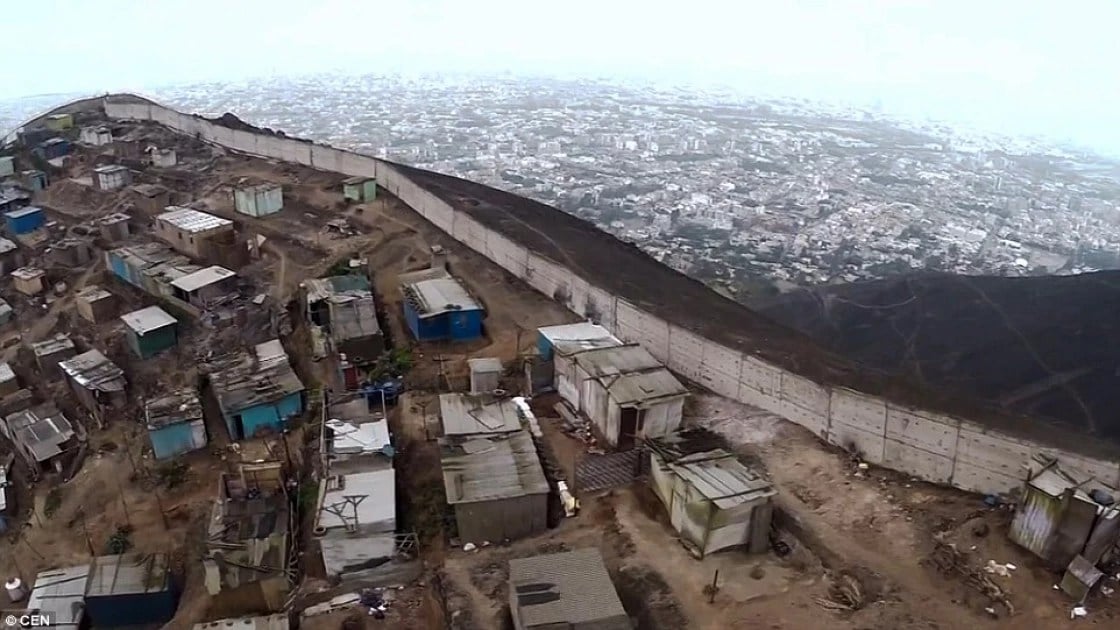great, now that there’s no physical barrier, the class divide will resolve itself naturally :)
They built a barbed wire topped chain link fence between a middle class townhome neighborhood in Chapel Hill and a working class apartment neighborhood in Carrboro. It was actually the owner of the working class apartment complex that put it up. I lived in the nicer neighborhood. Many people, myself included, were opposed to the fence. Nevertheless, the impact was an almost immediate and complete cessation of window-smashing/car robbing epidemic that plagued the nicer neighborhood. It being Chapel Hill/Carrboro, bolt cutters were soon employed. Fence had cycles of breached/repaired. Whenever fence is intact, no car break-ins but no social justice or whatever. I never felt so conflicted.
It’s true, poor people are more desperate to survive than richer people, so putting up a fence won’t solve shit except make richer people more comfortable.
Yeah, if part of your city is burning, if you cordon it off, there’s less of a chance the fire will affect your not-burning neighborhood.
The point is, we can either hide the problem with a wall and police patrols, or use the same money to eradicate poverty and fix it.
The problem is that if you spend the money to lift people out of poverty, other people will feel left out.
I think there are ways to have equity that don’t trigger as massive a sense of injustice as a privileged handout. If it was suddenly legal to have a policy that pays women and minorities more than white men, I’d be upset. Two wrongs don’t make a right. The current concept of equity as many folks talk about it comes off as punitive and the discourse framed in a way that seems almost intended to fail. For example, time and time again, messaging research clearly shows that way more people are willing to get behind measures that are designed to provide educational opportunities to the poor, but the second you make it about just providing educational opportunities to poor people of X race, support falls off a cliff. Take any issue that impacts a huge swath of humanity, offer a program that only helps a select few, and the research comes out the same. Yet progressives keep running with the messaging that guarantees failure.
While I absolutely believe that understanding how the social construct of race impacts US culture and treatment of POC (EDIT) is crucial to improving our society, I do fear that at some point (maybe in the distant future) this centrality of race in the progressive discourse is going to end up reifying and reinforcing the concept rather than consigning it to the dustbin of history, while simultaneously preventing any real change that benefits all laborers. I’m not saying we’re in a post-racial society—I’m just saying that the left has made a terrible mistake giving lip-service to intersectionality while focusing exclusively on race as the central sickness instead of widespread economic inequality that impacts all peoples.
I got shut down in a social justice exchange in a rural area once, because I had the audacity to stand firm in insisting that food deserts in the rural extremely white high poverty area was the product of economic inequality and rural underinvestment rather than race. Because everything is about race.
it is a weird chain of hills, on one side lives people that belong in the top 1% of peruvian society, and on the other side, people on the bottom 20%, on the rest of the city you see more of a gradient in between neighborhoods
That’s not weird at all if you consider the rich want to employ cheap laborers to support their lifestyle (maids, chauffeur, gardeners, kitchen staffs, etc) , but don’t want them to live in the same neighborhood, so you’ll have slum naturally developed near the rich area.
closeness doesn’t work very well here, if you are a rich fella on one side and your maid, cook, gardener, etc lives on the other side of the hill, they would have to take a long trip down one valley and then up the other to get to you, cuz there is a wall in the middle
Sounds like a problem for the poors.™️
I’m sure the rich people see no problem with that.
I thought it was gonna be some utopia inside a big walled city. This wall is useless. It’s just blocking their view.
the wall runs on the top of the hills, it doesn’t affect view, each side has their own view to their own valley and you can’t see across the hill, it only limits the movement of people, and 4.5Km is a lot to block on a densely populated city
Maybe they want to see the other side…
Then they need to break on through…
It’s kind of the same in Rio
Many favelas moved to the hills near cities where it was too expensive to build with 0 supporting infrastructure
Bow that the city grew suddenly you have luxury houses right next to a favela and the favela has the best view of the city
This is progress.
Cosmetic progress, I guess
Why do people say ‘after some 4 decades’ instead of ‘after about 4 decades’?
Crazy people get paid to do this.
Variety? It’s not like it’s wrong.







